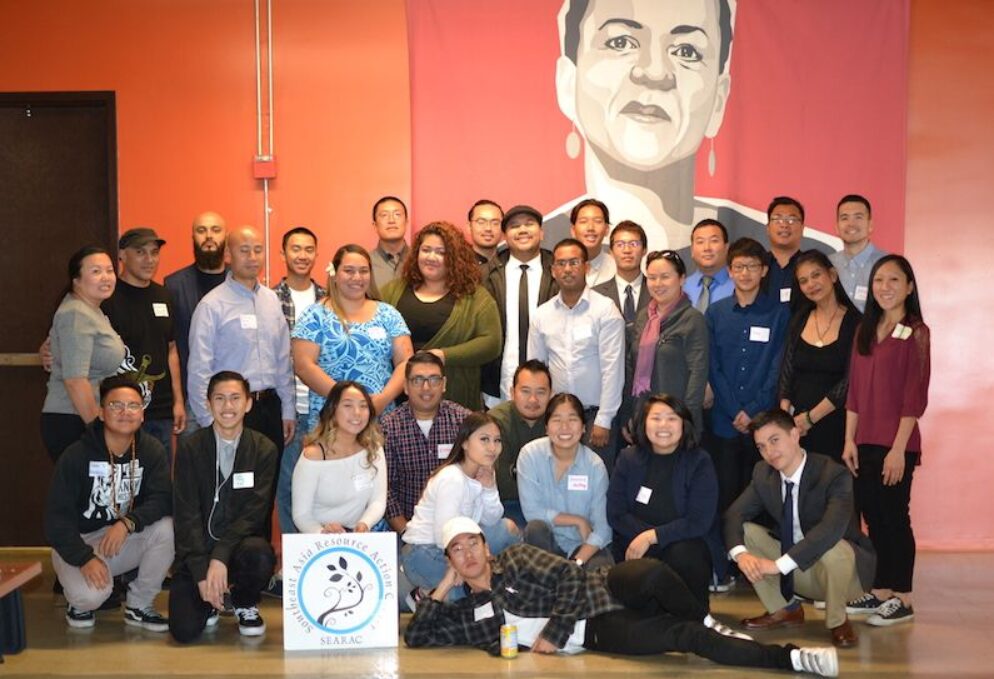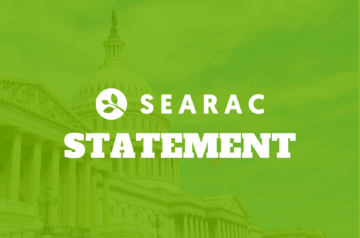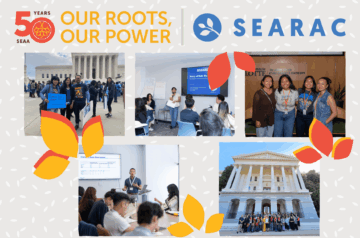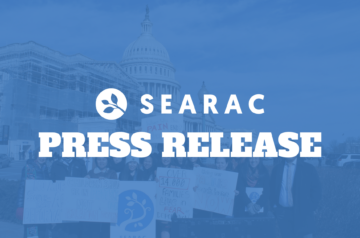FOR IMMEDIATE RELEASE
November 8, 2017
Contacts:
Nkauj Iab Yang, Director of California Policy & Programs, nkaujiab@searac.org, 916-428-7769
Gabriel Garcia, Boys & Men of Color Coordinator, gabriel@searac.org, 916-428-7769
Sacramento, CA – Asian American and Pacific Islander Boys and Men of Color Coalition Helping Achieve Racial and Gender Equity (CHARGE) is proud to release preliminary findings from a groundbreaking report based on a statewide survey of Asian American & Pacific Islander youth ages 12-30. The California Asian American and Pacific Islander Youth Report reveals that AAPI youth across diverse communities report high rates of bullying and discrimination, but youth from certain AAPI subgroups face significantly higher rates of economic insecurity and violence, and lack positive mental health supports to cope with these challenges.
CHARGE coalition members presented the report’s findings and policy recommendations on Monday, November 6, 2017, before the Select Committee on Asian Pacific Islander Affairs of the California State Senate and the California Asian and Pacific Islander Legislative Caucus. SEARAC Executive Director Quyen Dinh stated to the Committee, “CHARGE produced the California AAPI Youth Report to begin to fill a gap in the data on the state’s diverse AAPI youth. For far too long, educators and policymakers have known almost nothing about the disparities that exist among AAPI youth, as well as pressing unmet needs across AAPI subgroups.”
Dinh added, “This report should be a wake-up call to the state’s policymakers to invest resources in better data collection to paint a fuller picture of the needs, challenges, and assets of our state’s AAPI youth.”
Watch the recorded hearing here:
The report is based on 813 survey responses from a convenience sample of youth from 13 distinct ethnic subcategories, with a minimum n size of 10. CHARGE found that over 90% of Samoan, Cambodian, Hmong, and Laotian respondents say their families worry about having enough money to pay their bills. More than one in three Chinese-Vietnamese, Laotian, Vietnamese, and Cambodian respondents said they did not have positive adult allies at home to support or mentor them when they are having problems. In focus groups, many youth attributed this to unmet mental health needs from the trauma their refugee parents experienced during war and genocide.
The report also found distinct regional trends. Fresno’s Hmong youth described feeling invisible or misunderstood at school, despite living in one of the largest Hmong communities in the country. Thirty-eight percent of Oakland respondents and 77% of Stockton respondents reported feeling unsafe in their neighborhoods, compared to one in four respondents overall.
Long-time Stockton community leader Sokha Kaz Lek remarked, “These kids are living in the modern-day Killing Fields. We need to find a way to stop the cycle of violence. We need to help our youth live in peace.”
The CHARGE coalition members work collectively to grow an AAPI youth and community-driven movement to impact policy change, uplift accurate AAPI youth narratives, and build youth advocacy capacity to ensure AAPI communities are faithfully represented.
CHARGE coalition members include:
- Asian Prisoner Support Committee (APSC)
- AYPAL: Building API Community Power
- East Bay Asian Youth Center (EBAYC)
- Educated Men with Meaningful Messages (EM3)
- Empowering Pacific Islander Communities (EPIC)
- Fathers and Families of San Joaquin (FFSJ)
- Filipino Advocates for Justice (FAJ)
- Fresno Interdenominational Refugee Ministries (FIRM)
- Khmer Girls in Action (KGA)
- Southeast Asia Resource Action Center (SEARAC)
- Vietnamese Youth Development Center (VYDC)
See the report’s Executive Summary here.




